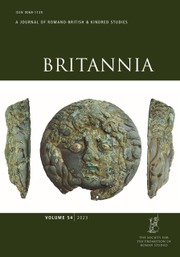Crossref Citations
This article has been cited by the following publications. This list is generated based on data provided by Crossref.
RIPPON, Stephen
2019.
Continuidad y cambio: sistemas de terrazgos y usos del suelo en la Inglaterra altomedieval.
Studia Historica. Historia Medieval,
Vol. 37,
Issue. 1,
p.
7.


